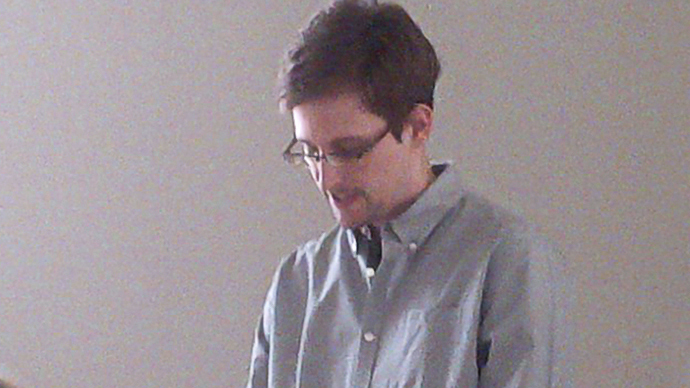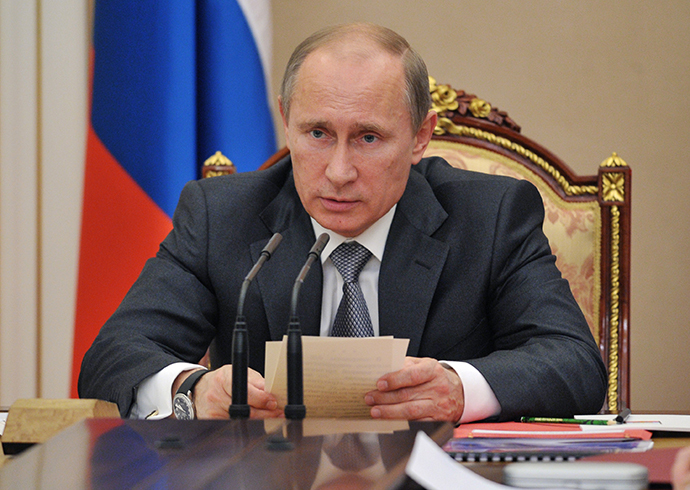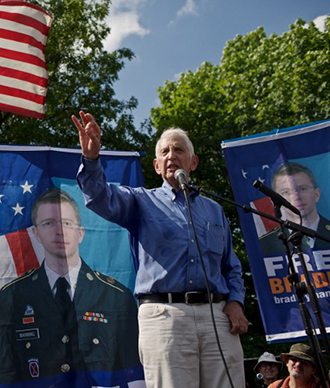Snowden is a problem for both US and Russia

The Snowden issue is a test of leadership ability not only for Putin but for Obama to solve, New York University Professor Stephen Cohen told RT.
The professor discussed Snowden's asylum on RT’s SophieCo programme.
RT:At this point who is Snowden more of a problem for, the United States or Russia?
Stephen Cohen: In my perspective he is a problem for both.
If we put this in an historical context, since the end of the
Soviet Union, 22 years ago, we’ve lost several opportunities to
create a meaningful cooperative relationship between
Washington and Moscow. It appeared, a few weeks ago, that we had
another opportunity. The opportunity began with a tragedy, the
bombings in Boston, when it was clear that we needed a lot of
cooperation in counter terrorism between Moscow and Washington.
And then, as the Syrian civil war, or whatever it is, spun out of
control, certainly the worst crisis in the Middle East in many
years, it also appeared that Washington and Moscow were ready to
try and do something about that. And then came Snowden. Not only
Snowden, but he is clearly a set back and I would say for both,
President Putin and President Obama.
RT:Do you think that Putin is handling the Snowden situation wisely?
SC: What makes this situation very interesting is that
President Putin is a man who likes to control the environment in
which he makes international and, I suppose, domestic decisions.
He couldn’t control this. Snowden came, literally, out of the
blue and he had to decide what to do. So he is caught, he was
caught and he remains caught between two very strong
countervailing factors. On the one hand, Putin pursues in the
world, what I would call, not an anti-American policy, but un-
American foreign policy. That is to say, a non-American foreign
policy. That is a foreign policy rather different from the United
States in many areas. Therefore, he could not turn Snowden, a
highly symbolic figure over to the United States. On the other
hand, it’s absolutely clear that Putin wants some kind of
cooperative relationship with the United States. I think he has
probably done as good as he could do. As I understand the
solution is to allow Snowden to remain in Russia in some status
of temporary asylum while he sorts out how he is going to go to a
third country, Venezuela or some place. That is a legal issue.
That is to say he needs travel documents, and, probably he has to
go to the embassy of that country in Moscow. But, though it’s
legal, it’s profoundly political in the way American-Russian
relations at the moment hinge on that. And as I said the other
day to an American who asked me, I think it’s a test of
leadership ability. Not only of Putin but of Obama to solve this
problem.

RT:Do you think Putin would have acted differently if he wasn’t confronted with the sheer of fact of Snowden being in Russia, on Russian soil?
SC: All leaders, real leaders, state leaders try to control the environment in which they make decisions. Very often they can. Wars come, acts of terrorism come, leaders change in other countries with whom they were doing business. What we don’t know about the Snowden affair is whether or not the Chinese, when they allowed Snowden fly to Moscow from Hong Kong cleared it with the Russian end. Whether the Russians said, “ok send him along”. If that happened, but we don’t know, but I would guess it did, because the Chinese-Russian relationship is very important and very close at the moment, I would assume that whoever made that decision in Moscow, and it might not have been President Putin. He can’t make every decision before it becomes a crisis. They may have assumed in Moscow, in fact that Snowden was going to do, as the Snowden party was going to do. Spend, maybe, ten hours in the transit zone of Sheremetyevo airport in Moscow and then get on the plane to Havana and on, at that time he thought, to Ecuador. And then a problem arose with Ecuador, and he is still in Moscow. In that sense we don’t know if Putin said “ok let him travel through Moscow” not knowing he was going to become a kind of resident in Moscow.
RT: Given the things the way they are now what does Russia risk if it gives Snowden official refugee status?
SC: There is a very strong anti-Kremlin, anti-Putin, anti-Russian lobby in Washington. That’s why we get propos torus legislations like the Magnitsky act. Congress is prepared to do anything to strike at Russia. Yesterday, for example, one of the senators proposed that the United States boycott the Winter Olympics in Russia in 2014. That won’t happen. But the mere fact that a United States Senator, who is supposed to be a person of wisdom and dignity, would propose such a preposterous thing shows you what kind of congress we are dealing with. I predict, and I think any idiot can predict, I don’t claim great credit for this, that when, and I assume it’s “when”, Snowden is given temporary asylum in Moscow, that members of congress, members of any anti-Russian lobbies like Freedom House in the United States and many others, will denounce the Kremlin and demand Obama to do something very bad to Russia. And then Obama will be tested. We will see if he can withstand that or not. That’s why I say, by the way, that I think this is a kind of test, not only of wisdom and leadership of Putin, but the wisdom and leadership of Obama. Mind you, Obama didn’t ask for this crisis. Putin didn’t ask for this. They just got it.
RT:The Media right now is more focused on Snowden’s future, on what he eats, on what he wears, where his girlfriend is than his revelations and the leaks. Can we expect the attention to actually turning back to the NSA and prison or is the issue now buried under the Snowden narrative?
SC: You raised, what for me is, a fundamental question. What we, that is we Americans should be doing now, ever since Snowden made his revelations, we should be having a big open public debate about whether or not we approve of these massive intrusive surveillance programs by American intelligence agencies. And of course, Europe and Russia and other countries who have been surveyed have to make that decision too. But first and foremost, this is the question for Americans.

RT:If you talk about me and people who have a post-Soviet hunger or a Soviet childhood, these revelations weren’t life changing for us because we suspect surveillance in some form or another. Many of our RT viewers are strongly against any kind of surveillance. Still, I know a lot of Americans who are assaying “on this point we are done with the government”. Larry King told me that he is actually siding with the government on surveillance. What do you see around you? Are people still shocked or are they digesting and accepting it in the name of the war on terror?
SC: Those surveillances are a problem in Russia too and they’ve
been for decades. And there is a debate in the Russian media
whether the FSB or the Russian intelligence agency is doing too
much or too little. Let’s be fair, people in Russia and in the
United States are afraid of terrorism. If you asked me, would I
allow the United States government to listen to my phone calls
and read my e-mail if they are going to prevent my children from
being killed in a terrorist explosion in New York City where I
live, I would say yes. I would just be a little more careful.
This is a major question in times of change. I am old enough to
remember the Ellsberg case. When he took the Pentagon papers
which documented all the Pentagon and the White House lying about
the war in Vietnam, and then The New York Times published them.
Then they were published very quickly as a book and Ellsberg was
on the radio and on the television as it existed then. And he was
out on bail, and famous lawyers came to defend him. In the end he
was exonerated in a way. He won in the courts. That in America
doesn’t exist anymore. Partly because of what happened in 9/11,
partly because we fought so many wars, many Americans are afraid
and we’ve become more accustomed decade by decade to this kind of
surveillance. The question that Snowden raises, should we become
accustomed to it? Is this really a trade-off between our fears
and our privacy that we want to make? But I agree with you, the
polls have shown that about half of Americans, may be more, were
ok with what the government was doing. But when you take a public
opinion poll you can get the answer you want by the way you ask
the question. If you say in general to Americans, are you
prepared to give up all the freedoms that Americans have fought
for for 200 years and allow the government to this kind of,
possibly illegal surveillance, a majority would say no. But if
you ask people, are you prepared to permit this surveillance so
you and your children are safe, a majority is going to say yes.
It’s in how you ask the question, and you cannot ask the question
until you had the national discussion, which we haven’t had,
which the government doesn’t want, but Snowden wanted. Until
Snowden’s personal drama ends or at least comes down the front
page, we are not going to have that discussion in this country.
The statements, views and opinions expressed in this column are solely those of the author and do not necessarily represent those of RT.












